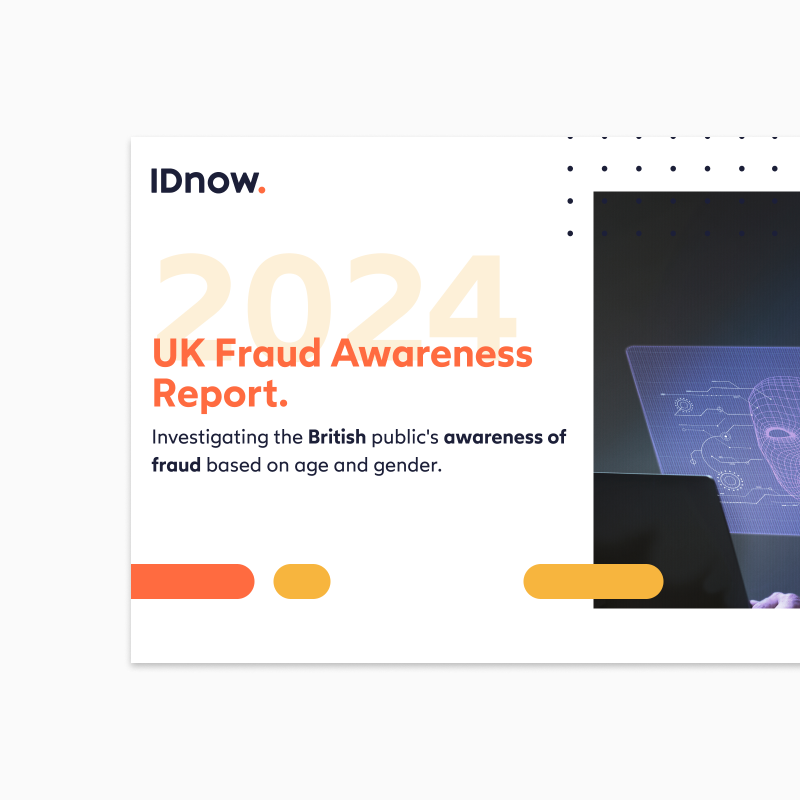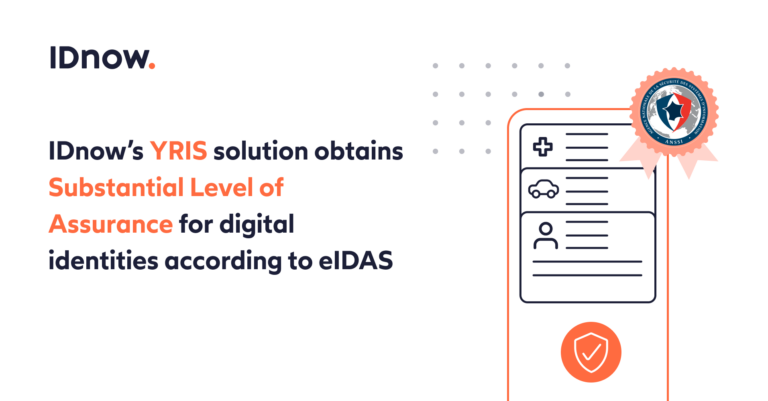IDnow fraud survey reveals: 33% of Brits share sensitive ID documents unprotected online, with youth most at risk.
- 33% of Brits have shared scans or photos of an ID card, driving licence or passport via digital channels, such as social media or email, despite knowing that these ID documents could land in the wrong hands
- The survey also revealed that three-quarters of Brits are most concerned about banking fraud
- Over half of Brits (54%) do not know what social engineering is, or the role it plays in fraud, with almost half not knowing what deepfakes are
London, February 20, 2024 – A major survey into attitudes and knowledge around fraud in the UK has been unveiled, with findings indicating a lack of knowledge around key tactics used by fraudsters, leaving Brits vulnerable to this crime, which is seeing exponential growth.
Commissioned by IDnow, a leading identity verification platform provider, the YouGov survey of 2,264 people has uncovered that almost half (45%) of UK adults were aware that scans or photos of their ID documents could be obtained by criminals to be used to commit fraud – yet sent the documents via digital channels, such as email, social media and messenger apps anyway.
Such activity could lead to identity theft, which IDnow believes should be a concern to the UK public, especially given the rise in deepfake technology. Developments in generative artificial intelligence (AI) mean deepfake technology can now be used to create hyper-realistic fake documents, as well as videos. However, the survey found that less than a third (31%) of Britons know what deepfake documents are and are aware of the potential risks posed by digitally generated images of physical documents.
Lovro Persen, Director Document and Fraud at IDnow, commented: “Many of us have seen the uncanny deepfake videos of celebrities that spread like wildfire across the internet, showing how easy it is to emulate the likeness of someone using AI. But worryingly, this research suggests that the UK public is not as concerned, or aware as they should be, of the risks associated with such digitally generated images or videos.
“The extraordinary leaps in AI technology mean it’s now almost too easy for a fraudster to carry out financial crimes. Consumers shouldn’t make it even easier for fraudsters though. Our advice is always to think twice before sending a scan or photo of your driving licence or passport into the digital ether via unencrypted channels, such as social media or email.”
Interestingly, 48% of 18- to 24-year-olds surveyed have shared ID documents via such risky channels, compared with just 21% of over-55s, highlighting the potential need to better educate the younger generation on digital fraud threats.
Is fraud front of mind?
The survey also revealed that three-quarters of Brits are most concerned about banking fraud, when asked about the different areas of life where fraud could occur. An additional 37% of Brits are most concerned about fraud via social media channels.
With 54% of Brits unfamiliar with social engineering, encompassing deceptive tactics such as phishing or smishing, the majority of the population remains vulnerable to potential fraud attempts. Social engineering, one of the most prevalent and hard to catch fraud typologies, sees fraudsters manipulating trust or fear, putting consumers at risk of divulging sensitive information or falling prey to malicious links disguised as trustworthy messages.
In terms of the likelihood of being a victim of crime, a fifth (21%) of Brits believe they are most at risk of someone hacking their social media profile. In fact, social media was the primary security concern for those aged 18- to 24-years-old, with each remaining age group citing their main worry as someone accessing their bank account through identity fraud.
Hence, for accounts connected to larger sums or investments, three quarters of Brits (75%) would be willing to go through a lengthier online onboarding process, if this made it safer. Doug Pollock, Vice President Customer Success at IDnow, explained: “Our findings show that banks in the UK do not always go far enough to make their customers feel safe and secure. They need to go further in terms of fraud prevention technology to meet their customers’ risk appetite, especially when their money is at stake. Because, and our research confirms this, if banks get it wrong, the majority of people (54%) would consider moving banks were they to become a victim of fraud.
“We hope these findings highlight the massive impact online fraud continues to have on British people. Because fraudsters work across industries, regions and use cases, it’s vital we all work together – financial services, technology providers, government, law enforcement and the public – to identify and stop fraudsters before it’s too late.”
About this study
This release is based on data from an online survey conducted by YouGov Germany, in which 2,264 people in the UK took part between 6 and 7 December 2023. The results were weighted and are representative of the UK population aged 18 and over.
UK Fraud Awareness Report 2024




